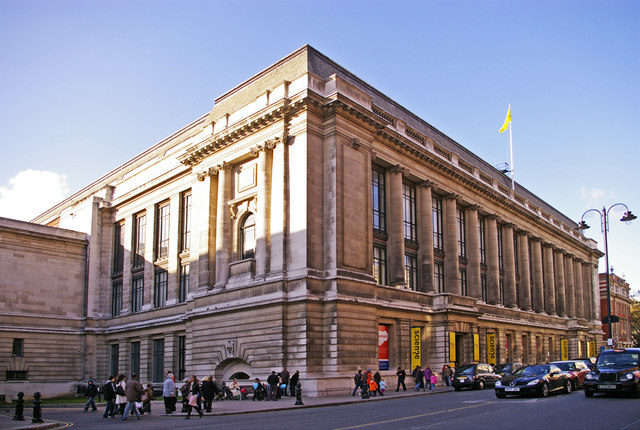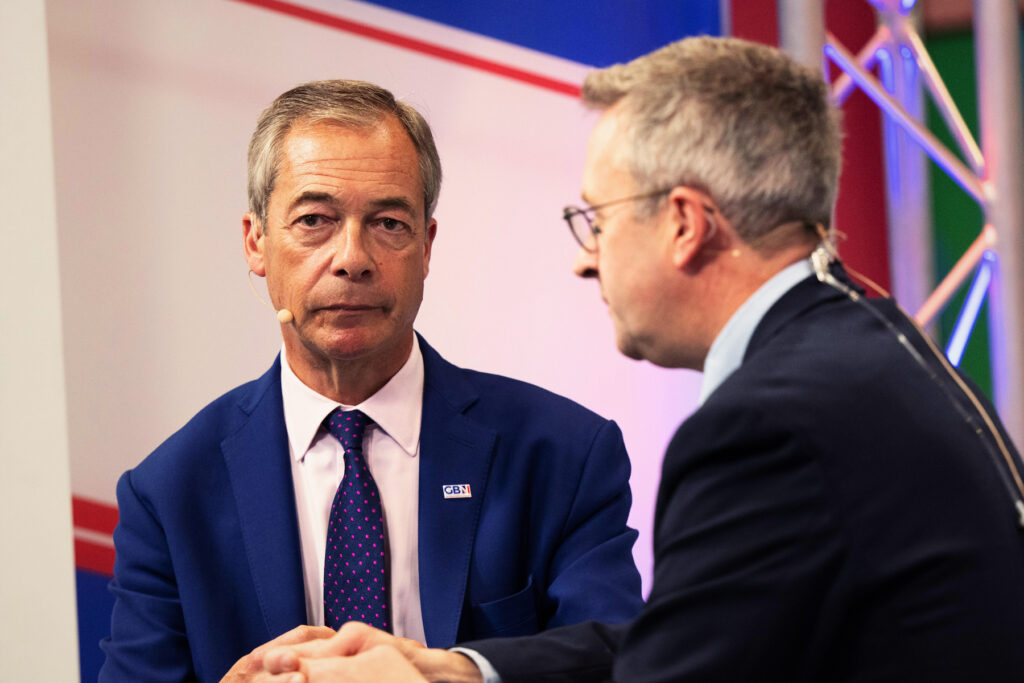Pressure is mounting on the Science Museum to cut ties with oil giants BP and Equinor as comedian Robin Ince became the latest to turn his back on its climate event.
Ince, the presenter of BBC R4’s The Infinite Monkey Cage, was due to chair a panel on greenhouse gas removal at the South Kensington museum this month, as part of a series of talks ahead of the UN climate summit later this year.
On Monday, he announced he was pulling out over the museum’s continuing polluting ties – just weeks after environmentalists George Monbiot and Mark Lynas also stepped down over the museum’s oil sponsorship.
‘Thing have to change’
Ince had been invited to chair a panel discussion on ‘Global Greenhouse Gas Removal’ on March 31, which Monbiot was also due to speak at. According to the website, the talk would explore “the many aspects of carbon capture, including reforestation, and rewilding as well as a range of industrial methods”.
Writing on Twitter, Ince said he was “really disappointed” to cancel, but felt compelled to after holding discussions with scientists on the research and development budgets for renewable energy.
“Having looked further into the oil sponsorship, I believe things have to change,” he said. “It makes me very sad as I love the museum and have been visiting for 42 years.”
Speaking to DeSmog, Ince said he had initially hoped to use his platform to ask questions about the museum’s fossil fuel sponsorship, but decided he needed to step back entirely.
“I increasingly worried that by attaching oil sponsorship to the science museum it sends out the message that the oil companies must be doing the right thing or they wouldn’t be attached to the Science Museum,” he said.
“I also thought about all those young people who find inspiration in the museum, some of whom will go on to be scientists, and it was a horrible vision to imagine their careers spent desperately battling the problems exacerbated by us acting too slowly when the tools of change were at hand,” he continued. “My hope was that, in whatever minor way, it might draw some attention to the conflicts I now see more clearly in the sponsorship deals.”
Fossil fuel ties
The Science Museum Group has worked closely with BP, Shell and Equinor since the early 2000s, though it no longer lists Shell as a partner. Both Shell and Equinor sponsored separate exhibitions at the museum between 2015 and 2018, while BP now sponsors the Science Museum’s Training Academy to train teachers on how to deliver science education.
It is not publicly known how much BP and Equinor’s sponsorships with the museum are worth, but the association has been fiercely criticised by campaigners, who have repeatedly called for the museum to sever these ties with some of the world’s most polluting companies. BP, along with Chevron, Shell and Exxon, is behind more than 10 per cent of the world’s carbon emissions since 1965. In 2019, more than 96 per cent of BP’s annual spending was on oil and gas.
Both Equinor and BP have been working closely with government officials ahead of COP26. DeSmog revealed how Equinor suggested to government officials it could invest in the UK’s natural carbon sinks in an apparent effort to secure its presence at the Glasgow summit, internal memos showed last year.
In 2018, campaign group Culture Unstained supported 46 scientists who backed a formal complaint to the Science Museum Group, accusing the museum of “undermining its integrity as a scientific institution” due to partnerships with Shell, BP and Statoil.
Like what you’re reading? Support our work by becoming a patron today!
Jess Worth, co-director of Culture Unstained, told DeSmog: “It’s a dangerous myth that the big oil and gas companies are now on the path to climate safety – far from it. The Science Museum is actively perpetuating this myth that fossil fuels giants are responsible partners in the energy transition, and it’s absolutely right that they are being called out on that.
“Most other cultural institutions have now ended their partnerships with big oil. It’s time the Science Museum caught up with the times.”
In a statement, the Science Museum’s director Sir Ian Blatchford told DeSmog: “We have a diverse, international and authoritative range of speakers for the Science Museum Group’s Climate Talks series.
“We’re only a few events in and already 10,000 people have tuned in or booked a free ticket to engage with the century’s defining issue so it’s a shame audiences won’t hear contributions from the speakers who’ve withdrawn.”
Main image credit: Wikimedia Commons/Christine Matthews
Subscribe to our newsletter
Stay up to date with DeSmog news and alerts







